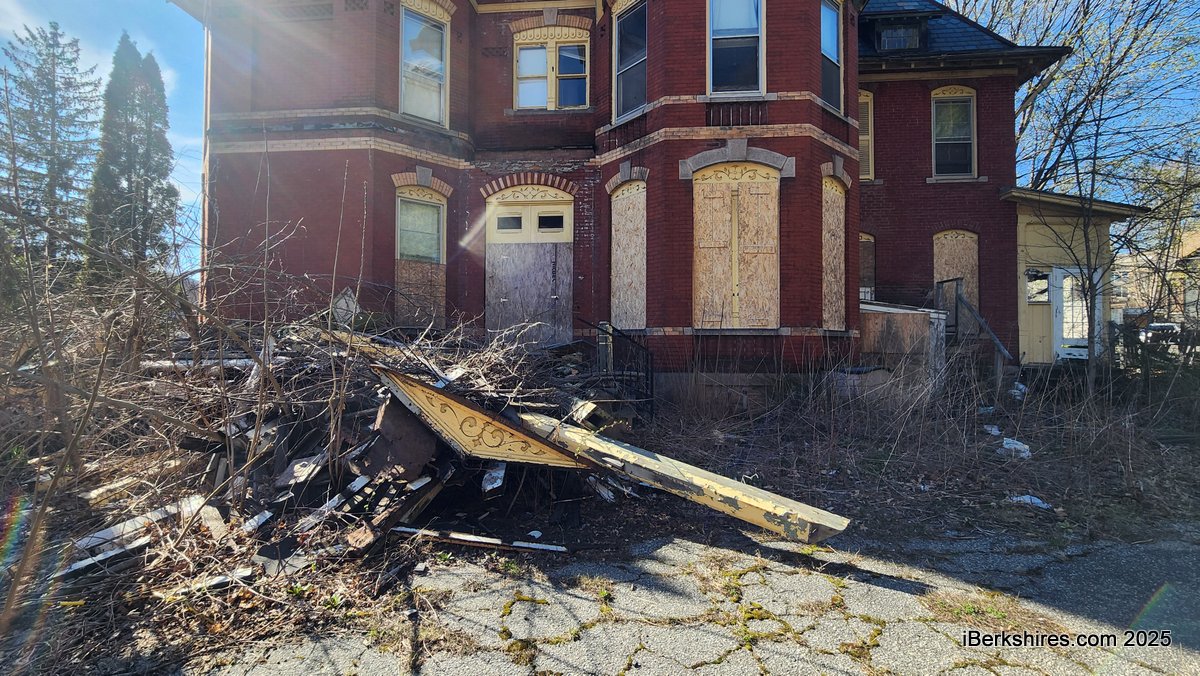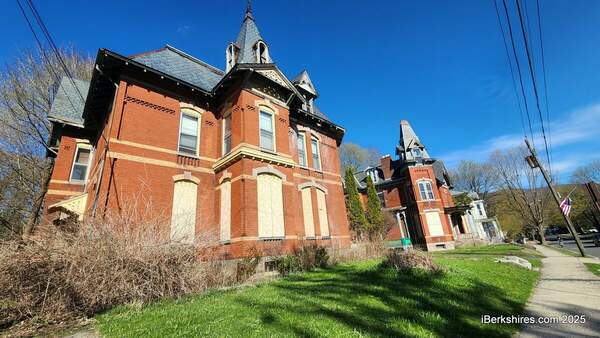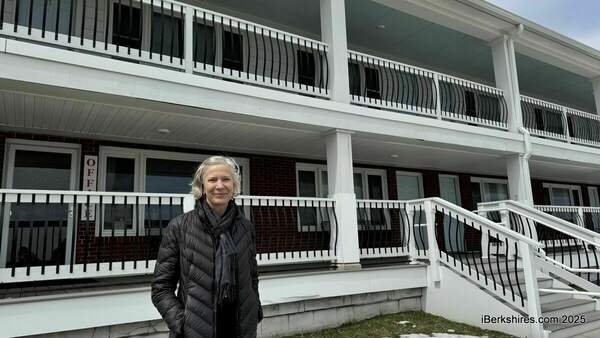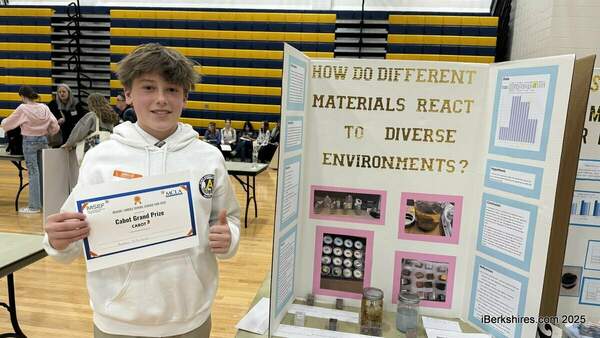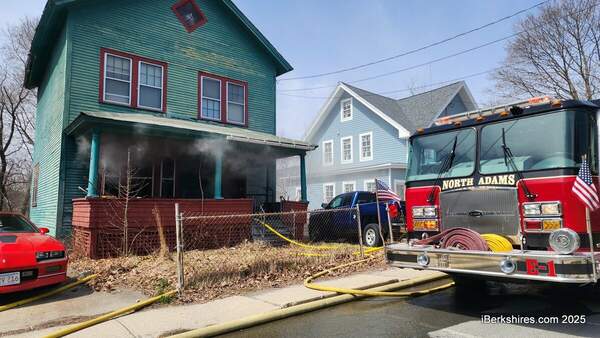Lenox Educator Reaches Out to Latino Community
LENOX, Mass. — In his first year of teaching Spanish at Lenox Memorial Middle and High School, Jeremiah Ames has begun working on ways to get his students in touch with the native Spanish-speaking people around them.
He would like to exchange essay assignments for a newsletter, Puentes or Bridges. He hoped, he said, to start it next fall.
Ames has been in touch with other teachers, and has been disturbed by a gap between what he teaches in class — Spanish for Advanced Placement testing — and the Spanish language and culture in the community. The Berkshires have a rapidly growing Chicana and Latino population, he said.
"Spanish is usually taught by white non-native speakers. The kids don't seem to want to tap into [the Spanish speaking community] and the community does not have access to classrooms."
There was a Latino council in Berkshire County, he added, but he thought it did not have a lot of resources. In Puentes, Ames would like to have his students write a list of resources and human interest stories. His kids wrote almost the same kinds of assignments in preparation for AP exams and finals, he said, but it was hard for them to take an essay seriously, if it was just a contrived exercise. He thought it might be valuable for them to write about a real person.
He had heard interest from members of the Latino community. His students were hesitant; it was intimidating enough to talk to strangers to begin with, let alone talking in a language they knew imperfectly. His students recognized the need for a connection with the Spanish community, but they were not sure what to do, he said. He thought at first they would just be making a phone call; they had cell phones, and could call from the classroom.
"They can conjugate verbs to the moon and back fearlessly," he said, but when it came to talking to people, they did not have the skills. "We teach kids to write beautiful essays about lobster paella they're never going to eat."
Ames' advanced students could also serve as translators for tasks like filing taxes. The kids had the language skills easily, he said. They would only need some specialized vocabulary, and he could train them in one or two brief sessions.
"So much of learning is isolated," he said.
In one Spanish class, for instance, he has been working with the pluperfect: "If I had been." He talked with a history teacher about dates that the students were learning in history, and used them in his own class exercises: "In 1914, if I had been Archduke Ferdinand, I would have ducked."
His kids got very uncomfortable when he tried to combine subjects. Ames said Puentes specifically came about because of a loose organization of people interested in promoting Spanish language and culture. Bill and Liz Matthiesen, musicians who perform together as Spare Parts, joined Sylvia La Duena to host a regular Spanish night at Sylvia's Inn in Adams. La Duena is from Argentina. Teachers from MCLA, BCC, Williams College and many Berkshire high schools came to these Spanish nights, Ames said.
Teachers were encouraged to bring students; half a dozen sometimes came with him. It gave them a valuable chance to speak Spanish in real conversations and also to swap ideas.
Ames spent first five years of his life in Brazil. His family were missionaries. When he first came to the United States, he spoke Portuguese as fluently as he spoke English, but he lost a lot of his Portuguese here. He was a miserable Spanish student in high school, he said. Then, when he was 24, he spent a year in Argentina and his Spanish kicked in. He spoke Spanish fluently when he came back again, but without the grammar base he would need in order to teach.
He got his master's in teaching in Brattleboro, Vt. He taught at Cushing Academy, and still works with a summer program there. This year, he switched to Lenox High, "and it's a little piece of paradise, a great school to teach in."
Teaching high school kids was a challenge, he said. "We can all be challenging. It's magnified in high school kids because they have to sit still and we have to watch them for six hours."
When he was in high school, he had many teachers who did not seem interested in their jobs or in the students. When he decided to teach, he said, he figured he might not be an excellent teacher, but he could be a placeholder. He thought if he could be kind to these kids for a year or two, could be worth it to them. The difference between private and public school was like the difference between working a factory job and starting a business, he said, and he taught the same subject at the same level in both.
He switched to public school because he wanted to get back to curriculum teaching. In private school, he was frustrated by the enormous if not overwhelming flexibility teachers had.
"I've got a lot to learn in that area," he said "You can't learn it without doing it."
Outside of school, Ames also hosts a musical open mic Monday evenings at Armi @ Great Barrington. Armi opened last summer, he said, and even in winter it served entertainment with dinner five nights a week: salsa, jazz, a poetry open mic Wednesdays. The Berkshires had a lot of local music and not a lot of venues, he said; his open mic has been very well received.
Ames writes and performs his own music. He described it as contemporary folk and blues. He trained as a classical guitarist, he said. He heard lots of folk and blues music in college. Both styles were simple to play, and he started writing and playing them with classic fingerings. He recorded his first CD last fall. "Places You Don't Go" was named for the title song. It was a breakup song, he explained, about places to keep his softer side for protection in rough weather. He added that he planned to begin recording for a second CD in April; he had tentatively called the new one "Brown Dog" after his dog.
Sundays, Ames added, he had an affiliation with Housatonic River Outfitters on the south side of Great Barrington. The store led backpacking and fly fishing in spring and summer. This time of year, Ames said, he guided snowshoe hikes in four mile loops on the Appalachian Trail.

